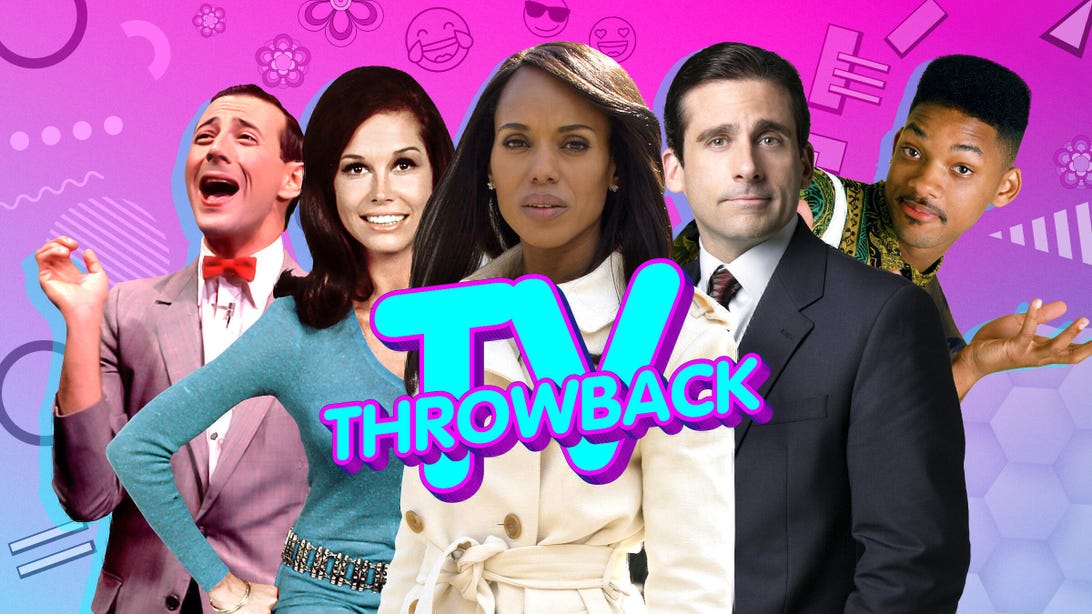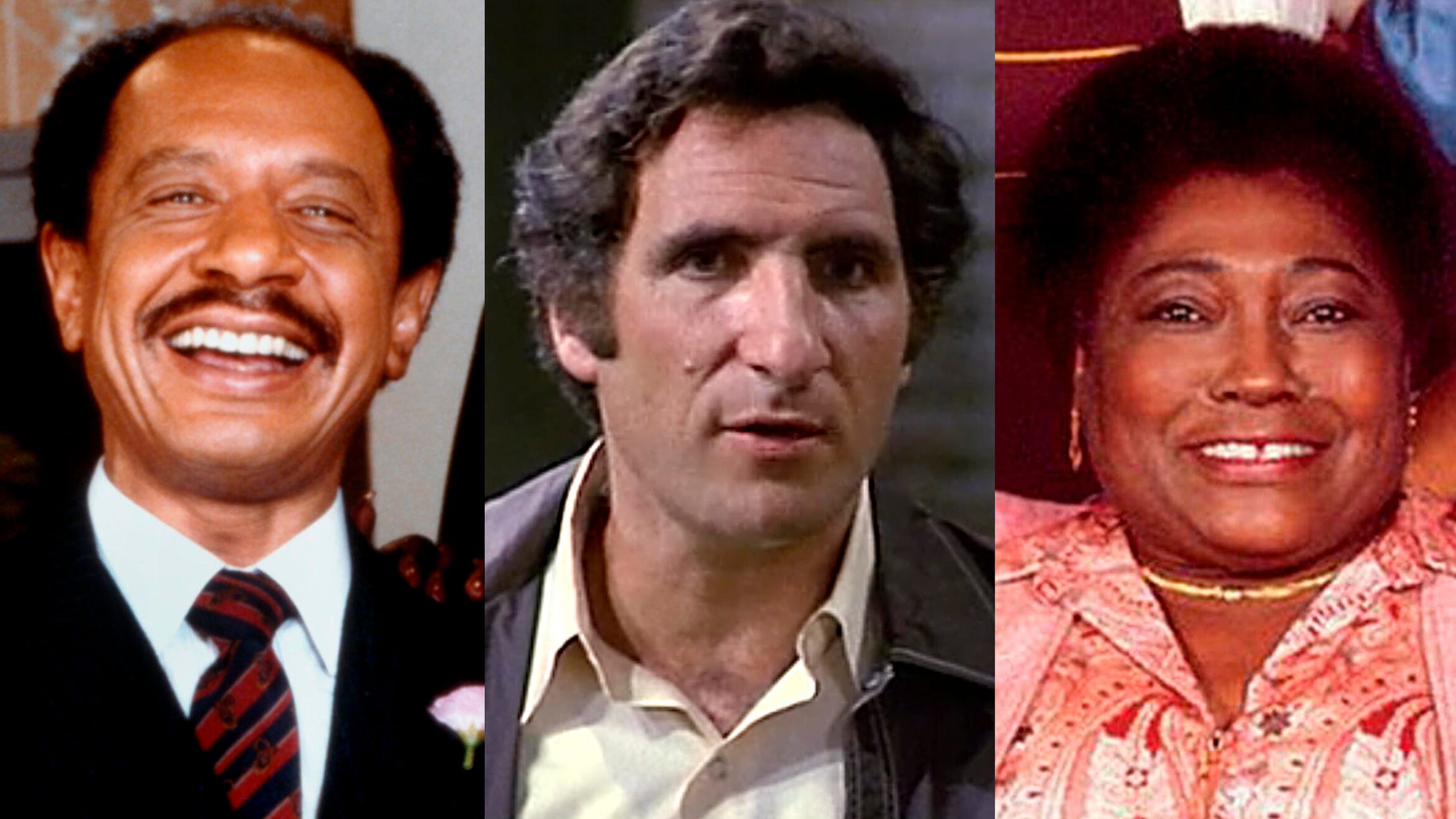
The Best '70s Shows to Watch Right Now
Pull up a Taxi and get ready for some Good Times with this list of the most influential '70s shows streaming now

The 1970s was a decade of great cultural change. The Vietnam War and Richard Nixon stoked the political divide, music and fashion reached new heights (yes, even disco), and marginalized groups fought for equal rights as people felt more empowered. Television was also feeling the creative energy evident throughout the era, with many '70s shows paving the way for programs that premiered even decades later.
We're celebrating the 1970s for TV Guide's TV Throwback, compiling the shows that defined the decade and are still relevant today. Many shows, like The Jeffersons, expanded the cultural viewpoints explored on TV, while others, like The Bob Newhart Show, redefined what primetime comedy could be. But all of them offer that comforting feeling of nostalgia.
To read more about the TV of the 1970s, check out why it's a good time to rewatch The Mary Tyler Moore Show, and how your favorite modern comedies owe a lot to three groundbreaking '70s sitcoms.
Hawaii Five-0 (1968-1980)
Watch it on: CBS All Access

When Hawaii Five-0 debuted in 1968 on CBS, Americans weren't even used to the country having 50 states. Hawaii had only become a state in 1959, making Hawaii Five-0 an exotic escape that helped it endure for 12 seasons, setting the record for longest-running crime show until Law & Order came along. Jack Lord became an American icon as Steve McGarrett, the commander of the state police, who tracked down rough-and-tumble criminals on the island and looked damn good doing it. Though mostly a straight police procedural, Hawaii Five-0 set itself apart by taking advantage of its picturesque setting by shooting most of its episodes on location and using locals in its cast. CBS would remake the series in 2010, and it did pretty well for itself, hangin' 10 seasons.
The Brady Bunch (1969-1974)
Watch it on: Hulu, CBS All Access
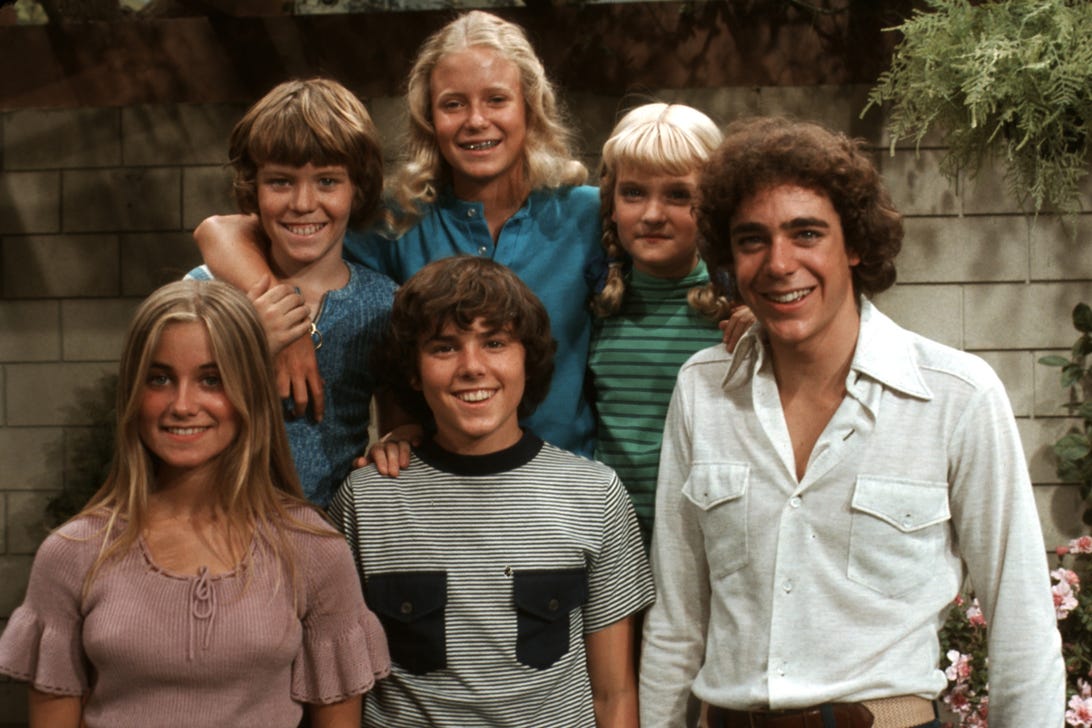
You know the story – they told you over and over in the theme song – of the blended family that brought a dad and his three boys and a mother and her three girls together under the same roof in the ultimate step-sibling comedy, but that was the strength of ABC's The Brady Bunch. The show had a "have your cake and eat it too" situation with its non-traditional family portrayed as fairly traditional and siblings that spanned elementary school to high school, making it a family comedy that appealed to viewers of all ages. The wholesomeness made The Brady Bunch one of TV's most endearing and enduring comedies, from its iconic theme song and intro sequence to its quotables ("Marcia, Marcia, Marcia!"). It has lived well past its run in repeats, movies (both sincere and satirical), and even an HGTV show the cast reunited for. If you just want to see Marcia get hit in the nose with a football, it's Season 4, Episode 18.
The Partridge Family (1970-1974)

The Partridge Family admittedly isn't the greatest show on the list, but it is the grooviest. The comedy about a family band that finds success is a '70s-themed party come to life, with bellbottoms and oversized paisley collars making it most indicative of the early half of the decade and not the transition to the '80s seen in later years. It was a permanent anchor on ABC's weekend schedule and never a major ratings hit, but youngsters went crazy for teen idols David Cassidy and Susan Dey, and Cassidy in particular became bigger than the show itself. The series also achieved success beyond the screen, with hits like the "I Think I Love You" charting on the Billboard Hot 100.
The Mary Tyler Moore Show (1970-1977)
Watch it on: Hulu

Few shows scream, "THIS IS A SHOW FROM THE 1970s!!!" louder than CBS's The Mary Tyler Moore Show, one of the best shows to define the decade through its depiction of society, fashion, and feminism. Mary Tyler Moore starred as Mary Richards, a single woman focused on her career in a time when most women on television shows simply hung their husbands' coats on the rack after their hard day of work, and was joined by Ed Asner as her boss Lou Grant, and Valerie Harper as her friend Rhoda Morgenstern, who would eventually get her own spin-off Rhoda. (MTM would spawn three spin-offs total, including Lou Grant and Phyllis, starring Cloris Leachman.) The Mary Tyler Moore Show was also quite the awards hog, winning 29 Emmys during its seven seasons, including Best Comedy from 1975 to 1977.
Columbo (1971-1978)
Watch it on: IMDb TV

Columbo (Peter Falk) wasn't a tough guy like Kojak or a cool cat like Starsky and/or Hutch; he was a dumpy detective in a trench coat with a funny way of talking that would become the inspiration for the crime-solving cartoon dog McGruff. His unassuming nature was his secret weapon — the affluent perps he had locked up underestimated his abilities until it was too late every single time — and because Columbo upended the crime drama by showing the viewer who did the crime at the beginning of each episode, the fun in the series wasn't whodunnit, but how Columbo would catch him. That quality writing and Falk's performance are what made Columbo a mainstay at the Emmys, where it won 13 statues. As the frumpy detective would say, "Just one more thing," Columbo can still run circles around the detective shows of today.
Sanford and Son (1972-1977)
Watch it on: Starz, Amazon Prime (with Starz add-on), Hulu (with Starz add-on)

Norman Lear adapted Sanford and Son from the BBC series Steptoe and Son, looking for the African American version of All in the Family's Archie Bunker with Redd Foxx's Fred G. Sanford. As the title indicates, the NBC comedy followed the adventures of Sanford, an irascible junk dealer, and his son Lamont (Demond Wilson) as they hustled their way into crafty, and frequently ludicrous, get-rich-quick schemes. Known at the time for its edgy racial humor, the comedy was a Top 10 series – reaching No. 2 twice – in its first five seasons. And that theme song still slaps.
The Bob Newhart Show (1972-1978)
Watch it on: Hulu

The Bob Newhart Show, which ran for six seasons on CBS, is the blueprint for building a sitcom around a stand-up comedian; don't mess with the comedian's formula, and you'll be fine. (See: Seinfeld, Roseanne, etc.) Bob Newhart played the psychologist Bob Hartley, but he may as well have played himself, a comedic mastermind of the straight-man persona and dry delivery. Surrounded by oddball characters from his practice and his home life, Hartley was one of the decade's most relatable characters because he appealed to the lie we all tell ourselves: It's not you who is crazy, it's everyone else around you. The show captured a perfect combination of simplicity and zaniness — whether it was Bob nearly dying in an elevator or getting locked in his building's storage on July 4th — that made The Bob Newhart Show one of the most innovative shows of its time.
M*A*S*H (1972-1983)
Watch it on: Hulu

These days, it's hard to tell comedies from dramas with all the half-hour dramedies out there, but M*A*S*H might be the most serious comedy of them all. Adapted from the feature film M*A*S*H, the series, which ran on CBS for 11 seasons and more than 250 episodes, followed the doctors and nurses stationed in Korea during the Korean War as they saved lives and tried to find some sort of normalcy in the chaotic times. With half of the screen time spent in the operating room working on injured soldiers, there really was no avoiding life-and-death situations where jokes were few and far between, and the series was at its best when it commented on the harsh realities of war. It's a good thing the show also happened to be hilarious. The series finale remains one of the most-watched television broadcasts of all time, netting 125 million viewers in 1983.
Good Times (1974-1979)
Watch it on: Starz, Amazon Prime (with Starz add-on), Hulu (with Starz add-on)
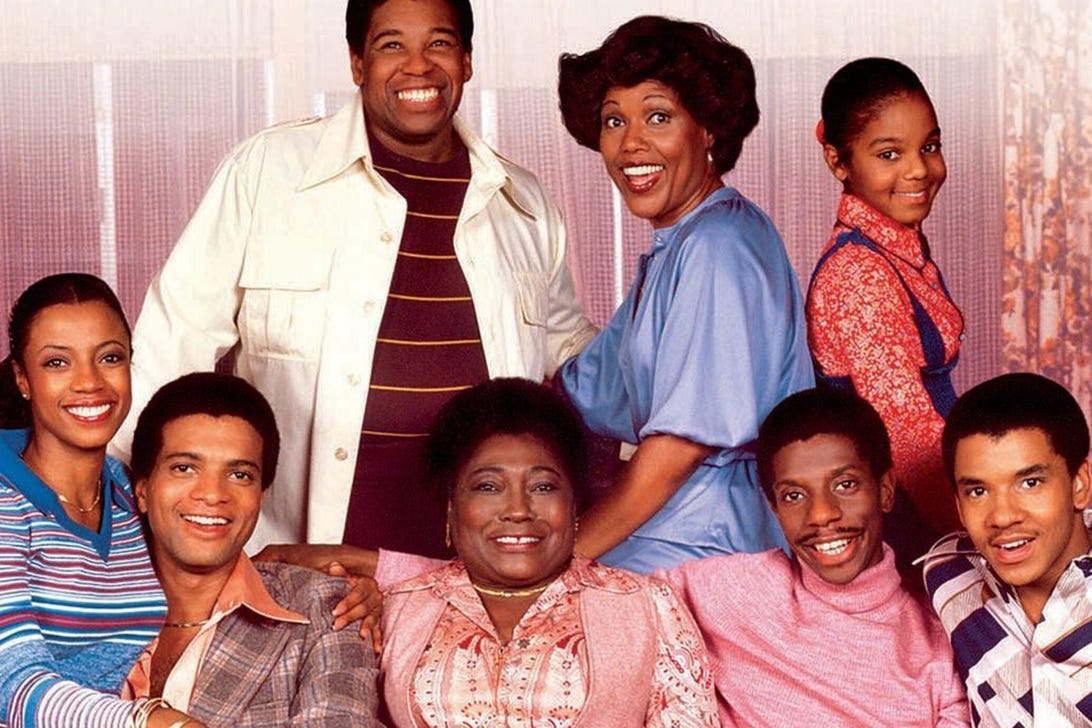
Developed by Norman Lear — a name you'll see a lot on this list — Good Times was a spin-off of Maude, which itself was a spin-off of the legendary All in the Family. (Both Maude and All in the Family are not readily streaming at the moment.) Good Times, which ran for six seasons on CBS from 1974 to 1979, was TV's first two-parent Black sitcom, following Florida (Esther Rolle) — who was Maude's maid in Maude — and James Evans (John Amos) and their three children as they tried to climb out of poverty in a Chicago projects highrise. With Lear's touch, it's a model for many family sitcoms today.
Little House on the Prairie (1974-1983)
Watch it on: IMDb TV

With the glory days of television Westerns fading away in the late 1960s, the 1970s needed something to satisfy the country's pastoral nostalgia. The Waltons (not streaming on a subscription service) fulfilled some of that with showing life during the Great Depression, but Little House on the Prairie's setting of the late 1800s and its simplicity – it was based on Laura Ingalls Wilder's children's books, after all – pushed it to nine seasons and more than 200 episodes as maximum comfort viewing. Still, the wholesome series took on some serious topics, including adoption, disabilities, and rape. Though some storylines and elements of the show are problematic, including its offensive depiction of Native Americans, an element retained from the books, the series did directly confront racism in multiple teachable moments.
Fawlty Towers (1975-1979)
Watch it on: Britbox

The britcom that all britcoms are judged by, Fawlty Towers is proof that less is more. With just 12 episodes to its name (two six-episode seasons, as the Brits are wont to do), Fawlty Towers perfects a tried-and-true formula by playing to its biggest strength: a frequently imploding John Cleese as hotel proprietor Basil Fawlty. The short-fused Basil may be the least hospitable person in Britain, but that doesn't stop him from opening a hotel, leading to many nervous breakdowns as he deals with demanding guests. While American sitcoms push for 24 episodes per season, Fawlty Towers made it OK for many British series to condense their quality and go out on top.
The Jeffersons (1975-1985)
Watch it on: Starz, Amazon Prime (with Starz add-on), Hulu (with Starz add-on)
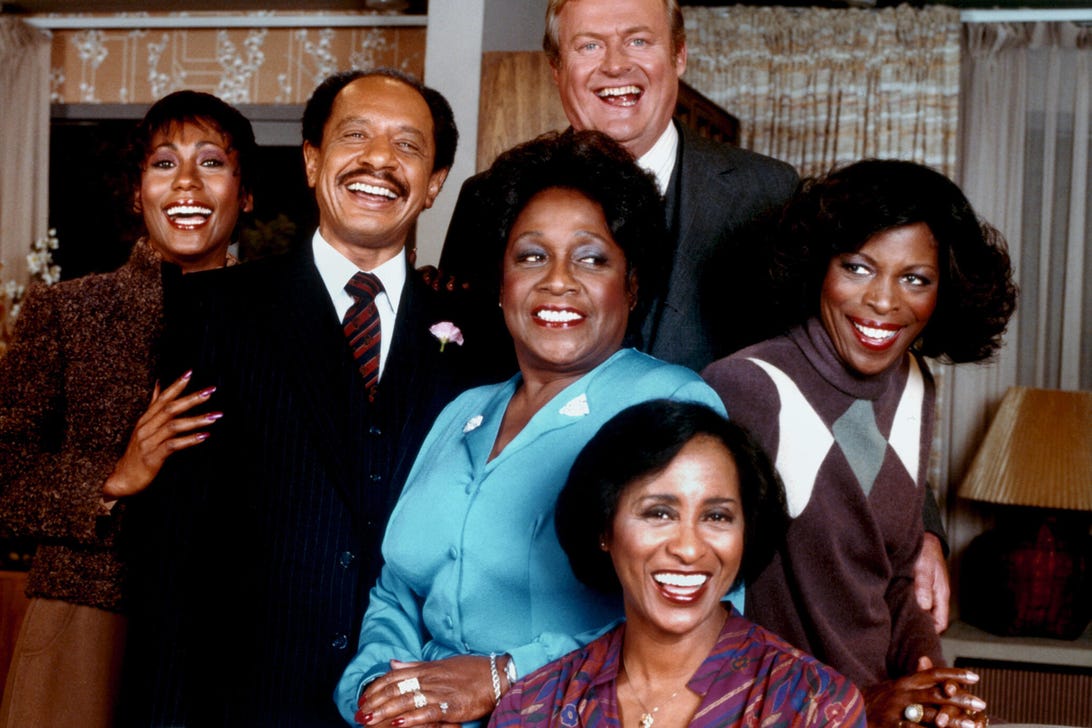
Movin' on up the list, The Jeffersons is the second spin-off of All in the Family on this list, and another show developed by the Greg Berlanti of the '70s, Norman Lear. George (Sherman Hemsley) and Louise Jefferson (Isabel Sanford) moved from Queens to Manhattan thanks to the success of George's dry-cleaning company, smashing barriers of how a Black family was portrayed on television at the time. But the series didn't stop blazing trails there; it was never afraid to tackle serious issues such as racism, alcoholism, and suicide, and the Season 4 episode "Once a Friend" featured the first transgender character in a comedy when one of George's Navy friends revealed she had transitioned to living as a woman. Despite running for 11 seasons and finishing in the Top 10 for several seasons, The Jeffersons was unceremoniously canceled by CBS in 1985 and was never given a proper series finale. Reboot time!
Taxi (1978-1983)
Watch it on: Hulu (not all episodes available)

Taxi helped establish a TV formula that will never go out of style: the workplace comedy full of struggling employees who find kinship because they'd rather be doing something else. If that sounds familiar, it should. Over the series' five seasons (four on NBC, one on ABC), Taxi was one of TV's most relatable programs not just because its characters faced the same problems its audience did, but because it showcased many different slices of life representative of New York City's diverse population. It also helped launch the careers of Marilu Henner, Tony Danza, Judd Hirsch, Christopher Lloyd, and Danny DeVito, and also dared to rein in the comedic mysteries of Andy Kaufman.
Looking for more shows to stream? Check out TV Guide's TV Throwback, recommending the best shows to rewatch — or to discover for the first time — from 1970 through the present day.
